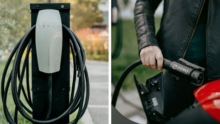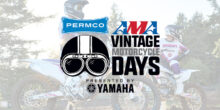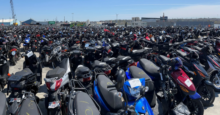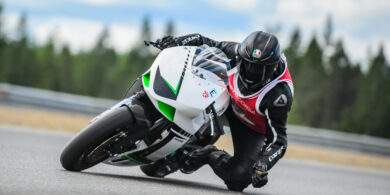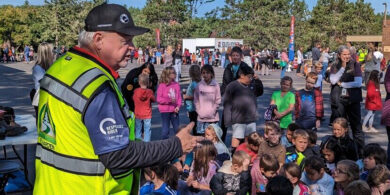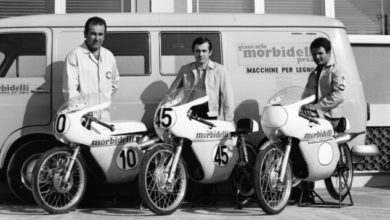Would trick scooters sell in your showroom?
Matt Maschmann, general manager of Maxim Honda Yamaha in Allen, Texas, has an uncanny way of making deals for faux leather handbags on the streets of Shanghai. I saw it firsthand earlier this year during a dealer trip to CFMOTO’s China headquarters in Shanghai.
So when I received an e-newsletter from his dealership touting the store’s push scooter business, I was instantly intrigued. My 11-year-old son picked up an affinity for scooters (think a skateboard with a pole in front to connect handlebars) this summer. In fact, I dropped him off at the local skate park enough times to know that their popularity is not very behind that of their skateboarding brethren. In short, they’re all the rage.
But selling push scooters at a powersports dealership? Maxim owner Jason Brisendine bought the dealership in September 2013. He moved his nearby Central Yamaha dealership into the newly named Maxim Honda Yamaha, and brought the crazy idea of selling scooters with him.
“It was kind of funny. When Jason first said he was bringing them over to this store, I said ‘What the hell are we doing with these?’ After seeing their success, it’s just been awesome,” Maschmann said. “He moved in the inventory from the Yamaha store, and he brought these scooters. I looked at him like he was nuts.”
Central Yamaha, less than 2 miles up the road, had been a single-line Yamaha dealership since 1987, and Brisendine had ownership of the store since 2004.
“This is a better location, better building,” Brisendine said. “We had been selling scooters at the old store for about three years, and Maxim is about 2 miles from what was at one time the largest skate park in Texas.”
Colby Brisendine, meanwhile, was checking in at about 7 years old when Dad decided to get him a scooter for Christmas.
“The kids at the skate park didn’t have a place to go buy stuff,” parts manager Bryan Hoover said.
“So I ordered one as a Christmas gift, put everything together and the thing didn’t work. So it was like ‘Here’s your scooter that doesn’t work’ when we gave it to him.”
Inspired to build or at least offer a better mousetrap, Hoover contacted a handful of scooter manufacturers about carrying their products.
“We started off small, not even with $5,000 worth of products,” he said. “But we brought them in and promoted. When school was out, we would go to the skate park with coupons and stickers and get the word out.”
Now, the dealership dedicates 1,000 square feet to its Central Scooters store and offers $20,000 worth of inventory, including completed scooters, wheels, decks, forks, bars and helmets.
“We’re getting sales from the parents who have purchased street bikes or ATVs, or even real scooters,” Maschmann said. “And the there’s the total opposite buyer. Parents that had not accepted motorcycles would come in for the scooter, then we would talk to them at motorcycles and they left thinking ‘These guys are not so bad after all.’ They thought we were all black leather jackets and beards.”
Maschmann also gets a kick out of seeing kids come up to the counter to pay for their purchase by unloading their pockets of wadded up ones and change. Complete scooters have a retail range of $99-$650.
“And they count it out and hope like crazy that they have enough to pay for it,” he said. “And we’ll tell them good job on saving the money and ask how they earned it, things like that. It’s good for the store — it gets people into the store who would have never come in.”
Hoover notes that many scooter companies are still small, with some of them working out of garages.
“But when you look at numbers on paper, if you’re a dealership anywhere close to a skate park, it’s worth a shot to carry them,” he said. “We’ve turned some unrealistic numbers here in our scooter category, way more than I thought we would. It’s the most profitable square footage in the store.”
Awesome wall
Brian Cox, owner of Simply Street Bikes and the guru behind the dealership’s seminars for customers, has come up with a truly unique atmosphere in the store with its “Wall of Awesomeness” that customers sign upon purchase of a bike.
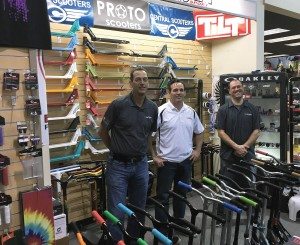
“We started it in 2013. We knocked down a wall between the two buildings and wanted to fill up the blank space,” he said.
And so “typical” or “customary” took the next train out of town when the dealership decided what to do with the new wall space.
“We didn’t have the budget to pay for images. We thought it would be a cool way to make customers feel a part of the store and culture,” he said. “It’s worked well. Sometimes people ask if it’s celebrities — we say ‘Yes, our customers!’ People also look for their friends’ names. We’ve even posted it on Facebook and had people tag their friends’ signatures. It’s been a fun way to have a very unique culture in the store, which is an extension of our own culture.”
But you have to be a bike buyer in order to sign it.
“Everyone who buys a bike is invited to sign it, and 99 percent of people do. We invite them by saying ‘Would you like to sign our Wall of Awesome?’ or ‘Remember when you used to write on the wall as a kid? Now you can again!”
For now, the autographs are limited to ground level.
“But we’re trying to figure out what to do for 2015. We may allow people to use ladder to get up high.”
Whatever it takes to keep the dealership top of mind.
Dave McMahon is editor in chief of Powersports Business. Contact him at 763/383-4411 or dmcmahon@powersportsbusiness.com.


